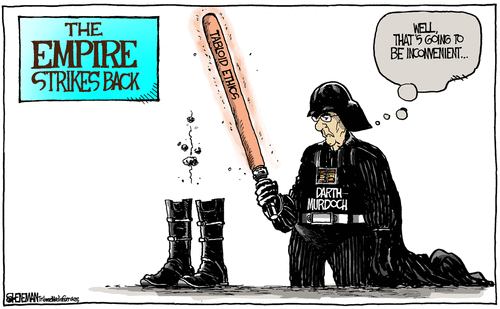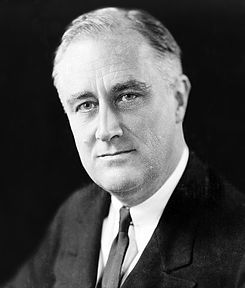This is your morning Open Thread. Pour your favorite beverage and review the past and comment on the future.
Find the past “On This Day in History” here.
Click on images to enlarge
July 21 is the 202nd day of the year (203rd in leap years) in the Gregorian calendar. There are 163 days remaining until the end of the year.

On this day in 1861, the first battle of Bull Run.. In the first major land battle of the Civil War, a large Union force under General Irvin McDowell is routed by a Confederate army under General Pierre G.T. Beauregard. . . .
On the morning of July 21, hearing of the proximity of the two opposing forces, hundreds of civilians–men, women, and children–turned out to watch the first major battle of the Civil War. The fighting commenced with three Union divisions crossing the Bull Run stream, and the Confederate flank was driven back to Henry House Hill. However, at this strategic location, Beauregard had fashioned a strong defensive line anchored by a brigade of Virginia infantry under General Thomas J. Jackson. Firing from a concealed slope, Jackson’s men repulsed a series of Federal charges, winning Jackson his famous nickname “Stonewall.”
Meanwhile, Confederate cavalry under J.E.B. Stuart captured the Union artillery, and Beauregard ordered a counterattack on the exposed Union right flank. The rebels came charging down the hill, yelling furiously, and McDowell’s line was broken, forcing his troops in a hasty retreat across Bull Run. The retreat soon became an unorganized flight, and supplies littered the road back to Washington. Union forces endured a loss of 3,000 men killed, wounded, or missing in action while the Confederates suffered 2,000 casualties. The scale of this bloodshed horrified not only the frightened spectators at Bull Run but also the U.S. government in Washington, which was faced with an uncertain military strategy in quelling the “Southern insurrection.”
Bull Run was the largest and bloodiest battle in American history up to that point. Union casualties were 460 killed, 1,124 wounded, and 1,312 missing or captured; Confederate casualties were 387 killed, 1,582 wounded, and 13 missing. Among the latter was Col. Francis S. Bartow, who was the first Confederate brigade commander to be killed in the Civil War. General Bee was mortally wounded and died the following day.
Union forces and civilians alike feared that Confederate forces would advance on Washington, D.C., with very little standing in their way. On July 24, Prof. Thaddeus S. C. Lowe ascended in the balloon Enterprise to observe the Confederates moving in and about Manassas Junction and Fairfax. He saw no evidence of massing Rebel forces, but was forced to land in Confederate territory. It was overnight before he was rescued and could report to headquarters. He reported that his observations “restored confidence” to the Union commanders.
The Northern public was shocked at the unexpected defeat of their army when an easy victory had been widely anticipated. Both sides quickly came to realize the war would be longer and more brutal than they had imagined. On July 22 President Lincoln signed a bill that provided for the enlistment of another 500,000 men for up to three years of service.
The reaction in the Confederacy was more muted. There was little public celebration as the Southerners realized that despite their victory, the greater battles that would inevitably come would mean greater losses for their side as well.
Beauregard was considered the hero of the battle and was promoted that day by President Davis to full general in the Confederate Army. Stonewall Jackson, arguably the most important tactical contributor to the victory, received no special recognition, but would later achieve glory for his 1862 Valley Campaign. Irvin McDowell bore the brunt of the blame for the Union defeat and was soon replaced by Maj. Gen. George B. McClellan, who was named general-in-chief of all the Union armies. McDowell was also present to bear significant blame for the defeat of Maj. Gen. John Pope’s Army of Virginia by Gen. Robert E. Lee’s Army of Northern Virginia thirteen months later, at the Second Battle of Bull Run. Patterson was also removed from command.
On this day in 1933, Wiley Post becomes the first person to fly solo around the world traveling 15,596 miles in 7 days, 18 hours and 45 minutes.





 On this day in 1848, a two-day
On this day in 1848, a two-day  Roosevelt was born January 30, 1882, in Hyde Park, New York, and went on to serve as a New York state senator from 1911 to 1913, assistant secretary of the Navy from 1913 to 1920 and governor of New York from 1929 to 1932. In 1932, he defeated incumbent Herbert Hoover to be elected president for the first time. During his first term, Roosevelt enacted his New Deal social programs, which were aimed at lifting America out of the Great Depression. In 1936, he won his second term in office by defeating Kansas governor Alf Landon in a landslide.
Roosevelt was born January 30, 1882, in Hyde Park, New York, and went on to serve as a New York state senator from 1911 to 1913, assistant secretary of the Navy from 1913 to 1920 and governor of New York from 1929 to 1932. In 1932, he defeated incumbent Herbert Hoover to be elected president for the first time. During his first term, Roosevelt enacted his New Deal social programs, which were aimed at lifting America out of the Great Depression. In 1936, he won his second term in office by defeating Kansas governor Alf Landon in a landslide.
Recent Comments